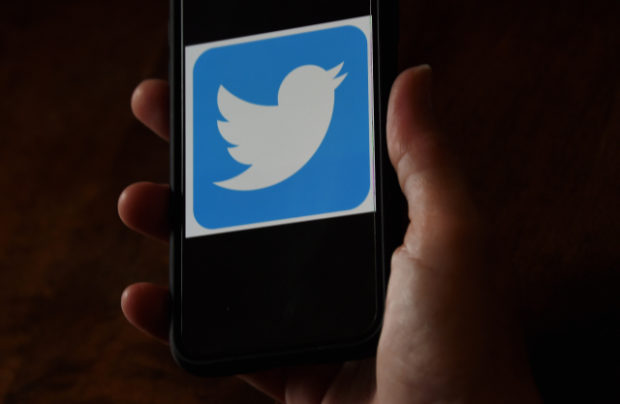Twitter users test Spaces, a group audio chat

Creators of ‘Spaces’ will be able to choose to activate the option ‘transcription,’ very useful for hearing-impaired web users. Image: AFP/Olivier Douliery.
After Fleets, Twitter is launching “Spaces.” The social network is innovating yet again by offering a group audio chat system. Currently in test phase, this new feature could be quickly rolled out. With “Spaces,” Twitter continues to orient its strategy towards more audio and security on its platform.
“[The] human voice can bring a layer of connectivity to twitter through emotion, nuance and empathy often lost in text. we see this with voice tweets & voice dms. sometimes 280 isn’t enough, and voice gives people another way to join the conversation.”
Through a series of tweets, the official Twitter Spaces account announced the launch of its test phase on Dec. 17. For the moment, only a privileged few can try out this new feature that allows users to converse face-to-face.
aye we’re live! what up y’all, we're the team behind Spaces––a small experiment focused on the intimacy of the human voice🧵
— Spaces (@XSpaces) December 17, 2020
A safe space?
The name given to this new feature, “Spaces” is not insignificant. The social network, which is taking on buzzed-about voice chat-based, invite-only social media app Clubhouse (still in beta) with this feature, claims to want to offer a space where internet users can feel safe to discuss issues freely.
Twitter seems to be reinforcing its strategy of making its platform as secure as possible while the social network continues to find itself in controversial Twitterstorms about a variety of topics.
To enable these chat rooms, selected individuals can create “Spaces” or discussion groups by inviting users of their choice. Only the administrators can decide who can speak in these groups. The “Spaces” are currently public and will automatically appear in the Fleets with an associated link that can be shared, said Twitter on its help page.
Currently only available in iOS, all users will be able to join a group as a listener. The creators of these discussion areas will obviously be able to delete, report and block members present in the discussion and of course close the group.
After they have been closed, Twitter will keep a copy of these group chats for 30 days, and while the chats will no longer be accessible to users, the company will have the possibility to examine whether or not the group has broken the rules of the platform.
The creators will be able to ask for a copy, as will internet users who have spoken, though will only be available if the option of retranscription has been activated.
While a maximum of 10 people can speak in a group, the number of listeners is unlimited. Note also that protected accounts will not be able to create “Spaces” but will be allowed to join and speak in a group. Their presence will also be visible to the other members of the group.
To refine its tests, Twitter is offering users the possibility to apply to test “Spaces” by filling out an online form. CC
RELATED STORIES:
#Covid19, #BlackLivesMatter top Twitter themes in 2020
Twitter bans harmful false claims about COVID-19 vaccinations